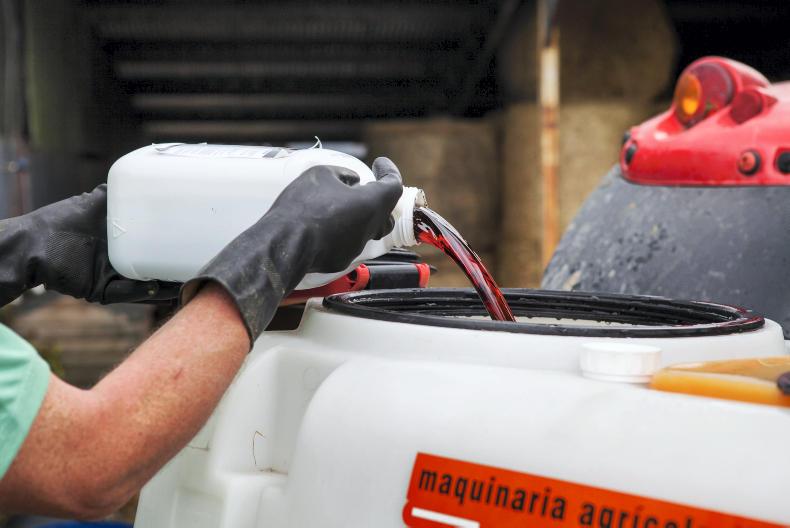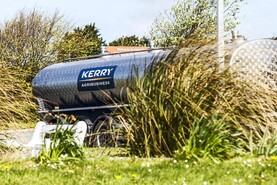Water testing for pesticide contamination is to be ramped up next month, the Department of Agriculture has confirmed.
Growing concern about the level of pesticides, in particular the grassland herbicide MCPA, has prompted the introduction of a two-year testing programme for four high priority water catchments.
These are Lough Forbes in Co Longford, the River Nore, Troyswood, Co Kilkenny, River Feale, Abbeyfeale, Co Limerick and River Deel, Newcastlewest, Co Limerick.
The monitoring will focus exclusively on phenoxy acid-based herbicides such as MCPA, 2,4-D and others.
During April and May, August and September, minor rivers and streams leading to the four catchments will be sampled weekly, and every fortnight for the rest of the year.
As revealed in the Irish Farmers Journal last week, the Department of Agriculture has written to 2,254 farmers who bought MCPA products, warning them that they could face increased inspections, potential restrictions and a possible ban on the spray.
The Department has this week warned that where non-compliance is found, farmers may face sanctions under cross-compliance and Sustainable Use of Pesticides Directive (SUD).
Provisional water testing figures for 2017 show that pesticides breached legal limits in more than 150 samples, a 10% increase on 2016 figures. MCPA was the chemical involved in 80% of those.
In all, 49 separate supplies were affected in 2017, up from 42 in 2016.
While the figures reflect in part the more intensive monitoring carried out in recent years, they also indicate mis-use of the chemical.
The legal limit for MCPA in drinking water is one part per billion, or the equivalent of one drop in an Olympic-sized swimming pool. The legal limit is well below the levels which would affect human health, according to the EPA.
Read more
Crackdown on farmers using MCPA
Threat of rush spray ban grows
Water testing for pesticide contamination is to be ramped up next month, the Department of Agriculture has confirmed.
Growing concern about the level of pesticides, in particular the grassland herbicide MCPA, has prompted the introduction of a two-year testing programme for four high priority water catchments.
These are Lough Forbes in Co Longford, the River Nore, Troyswood, Co Kilkenny, River Feale, Abbeyfeale, Co Limerick and River Deel, Newcastlewest, Co Limerick.
The monitoring will focus exclusively on phenoxy acid-based herbicides such as MCPA, 2,4-D and others.
During April and May, August and September, minor rivers and streams leading to the four catchments will be sampled weekly, and every fortnight for the rest of the year.
As revealed in the Irish Farmers Journal last week, the Department of Agriculture has written to 2,254 farmers who bought MCPA products, warning them that they could face increased inspections, potential restrictions and a possible ban on the spray.
The Department has this week warned that where non-compliance is found, farmers may face sanctions under cross-compliance and Sustainable Use of Pesticides Directive (SUD).
Provisional water testing figures for 2017 show that pesticides breached legal limits in more than 150 samples, a 10% increase on 2016 figures. MCPA was the chemical involved in 80% of those.
In all, 49 separate supplies were affected in 2017, up from 42 in 2016.
While the figures reflect in part the more intensive monitoring carried out in recent years, they also indicate mis-use of the chemical.
The legal limit for MCPA in drinking water is one part per billion, or the equivalent of one drop in an Olympic-sized swimming pool. The legal limit is well below the levels which would affect human health, according to the EPA.
Read more
Crackdown on farmers using MCPA
Threat of rush spray ban grows






 This is a subscriber-only article
This is a subscriber-only article










SHARING OPTIONS: